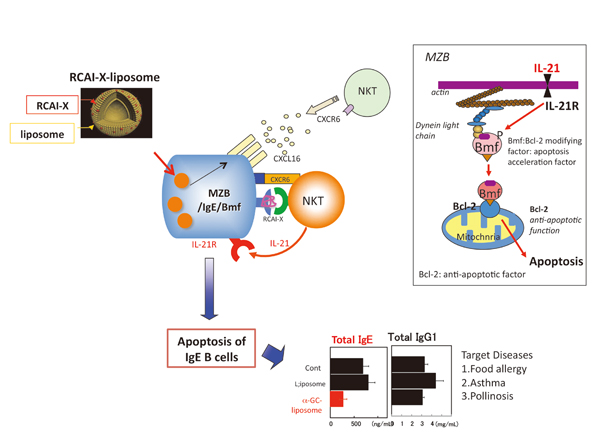Allergy Project
Program for Medical Innovations
A chemical compound that selectively induces suppression of total
IgE production has been developed. This compound carries an α-GalCer analog, RCAI-X, and selectively targets marginal B cells (MZB), but not DCs or macrophages. These B cells, after taking
up the compound, express IgE mRNA, IL-21 receptor, and CXCL16 to recruit NKT cells. The NKT cells activated by RCAI-X presented
by the MZB cells produce IL-21. The NKT cell production of IL-21 in turn acts on these MZB cells to induce phosphorylation of Bmf, causing it to detach from the dynein light chain and bind with Bcl-2,
inhibiting its function and inducing apoptosis of the IgE B cells.
Bmf expression in IgG B cells is very low, therefore, the compound
only affects IgE B cells and not IgG B cells. The RCAI-X compound,
even at doses in the 1-100 ng/kg ranges, resulted in significant suppression
of not only the antigen-specific secondary IgE but also of
total IgE production (Fig.). A contract with a pharmaceutical company
(Kaken Pharmaceutical Co. Ltd.) was completed in 2013 to
develop a drug applicable for asthma, pollinosis or food allergy.
The project is supported by the RIKEN Drug Discovery and Medical
Technology Platforms and the Scientific Research Fund from
Health and Welfare.

Figure: Development of a compound mediating
IgE-specific suppression by RCAI-X-liposomes


